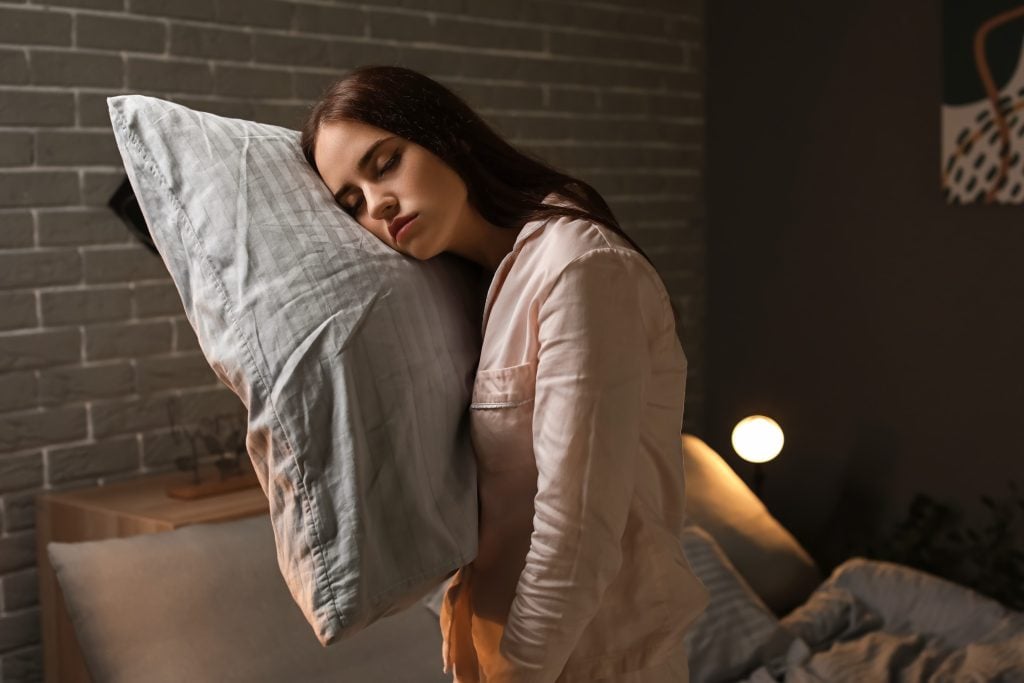For those with first-hand experience of sleepwalking, it can seem ironic- even whilst asleep during the night, we can’t seem to switch off entirely. Our blog explores this concept in greater detail and outlines the causes and impacts of sleepwalking.

NHS define sleepwalking as ‘when someone walks or carries out complex activities while not fully awake.’ As these instances occur whilst the individual is still asleep, sleepwalkers usually have no recollection of their actions, even when prompted by a spectator in a bemused or concerned tone.
An individual who sleepwalks is inevitably in a compromised state, in the sense that they’re less alert of their surroundings than they would be if they were awake. With this in mind, minor injuries or accidents could occur during a sleepwalking episode.
Of course, if you’re by yourself, there’ll likely be no one around to witness you sleepwalking. However, having someone nearby, such as a partner or housemate, could be beneficial. Whether you should wake a sleepwalker or leave them to their own devices is often a cause of debate; however, the best course of action is to do neither.
It’s important to ensure they’re safe. It’s advised to reassure the person and gently guide them back to bed. Additionally, you mustn’t startle the person or try to physically restrain them unless they’re in danger, as they may lash out.
The impacts of sleepwalking, which we discuss below, will likely also be the causes. With this in mind, sleepwalking often occurs due to sleep deprivation and stress. Other causes include but are not limited to migraines, fevers, breathing disorders, Parkinson’s disease, restless leg syndrome and certain medications such as Ambien, Edluar and beta-blockers.
Sleepwalking may occur due to an underlying health condition, and in the event of regular instances, contact your GP for a professional opinion. Below, we outline simple and effective ways that could help prevent sleepwalking episodes.
There is often a correlation between sleep deprivation and sleepwalking; therefore, paying attention to your sleep hygiene is important. As a general rule of thumb, it’s best to stay hydrated throughout the day and avoid caffeine or alcohol before bedtime. Maintaining a consistent sleep schedule and limiting bright lights and screen time before sleep may also be helpful. If you’d like further insight into sleep hygiene, check out our blog ‘What Is Sleep Hygiene?‘. If you believe your mattress is the cause of poor sleep quality and quantity, upgrade your sleeping solution for an affordable price courtesy of Mattressman and our wonderful collection of mattresses, bed frames and bedding.

Stress is often a trigger for sleepwalking episodes, so finding ways to alleviate or reduce your stress levels could prove beneficial. In fact, research suggests that high levels of stress impair sleep by prolonging how long it takes to fall asleep and fragmenting sleep. Of course, stress varies from person to person, but it’s helpful to take control of the root cause of your stress wherever possible. Prioritising time for yourself, managing your workload, and regularly exercising are three simple yet effective ways to manage your stress levels.
Please note that Mattressman are not healthcare professionals. Our blog intends to highlight the causes of sleepwalking. If sleepwalking becomes a regular occurrence, please contact your GP.